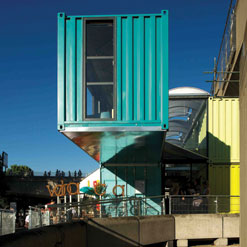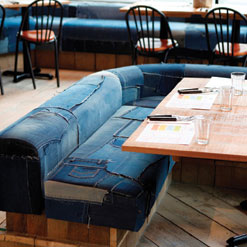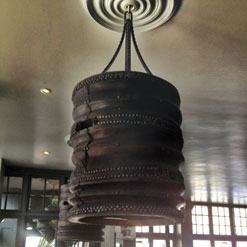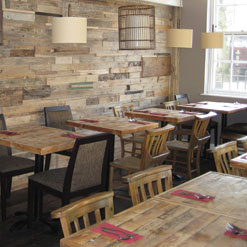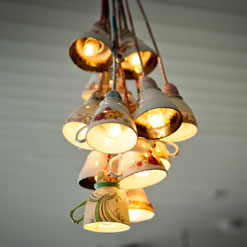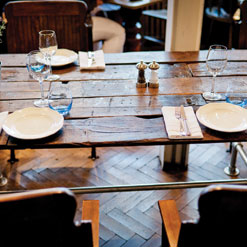Upcycling gold
Hospitality leads the field in its ability to find new uses for old, discarded and reclaimed objects. Emily Manson highlights some of the industry's most ingenious examples of modern-day alchemy
We are all now aware of the need to recycle. It's been drummed into our consciousness for years, both at work and at home. But what about "upcycling"? Is it just more of the meaningless greenwash that is so often bandied about? Although it is about reuse, the concept of upcycling is that the products are reused - or recycled - to make more of them than they originally were, so it's recycling plus some.
Sarah Daly, My Green Eye's strategic sustainability consultant, explains: "Upcycling is the clever solution, because if we can reduce what we buy in the first place and effectively find another use for existing objects, then with some creativity we have resolved several issues in one. As well as saving money, there's no doubt that upcycling creates unique and chic features which become great talking points."
And it turns out that the hospitality industry is adept at it. Sustainable Restaurant Association chairman Mark Linehan admits: "We never cease to be amazed at the ingenuity of our member restaurants.
"Making new use of items other less creative and responsible businesses would simply consign to the bin - upcycling - is a great example of that innovation."
This week we highlight some top examples of the industry's ingenuity, creativity and ability to upcycle.
Other upcycled elements in its two restaurants include lighting features made from old copper piping and bill bowls made out of Cuban telephone wire.
Responsible hospitality resource
For more information on how to run your business responsibly, visit our online resource www.catererandhotelkeeper.com/responsible-hospitality.
The Responsible Hospitality channel, supported by Accor, Gram UK and Kraft Foods, features tools and guidance that will help you reduce waste and energy usage, while offering examples and information on increasing recycling, ethical food sourcing and social responsibility.



